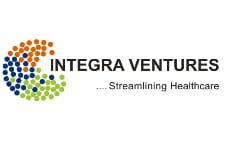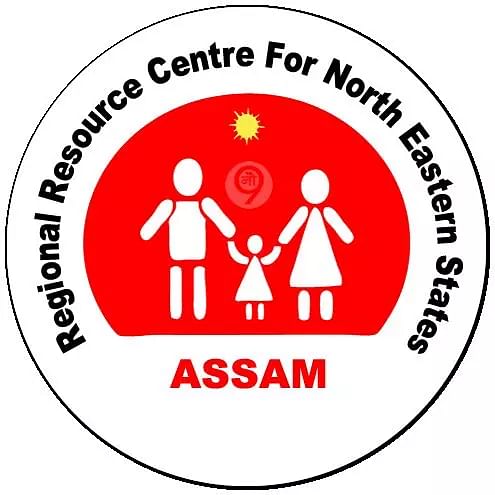







Read More
Master of Science in Microbiology is a 2-year postgraduate programme which deals with more detailed and advanced study of the microorganisms, including microbial cellular processes, their harmful and beneficial aspects, microbes for human welfare, molecular details of microbial cells and develops knowledge and understanding for applying it for societal benefits which may include sectors such as healthcare, agriculture, soil and environment, food processing, pharmaceutical etc. The objective of this programme is to produce intellectual and proficient microbiologists by enhancing the abilities and skills of students for application of microbiology theories and expertise in the live problems faced by the society and various industrial sectors.
Year wise Course Details
Courses for this semester
Introduction to Microbiology &Microbial Diversity course include the study of history of microbiology, different bacterial, fungi, viral pathogens, their general characteristics, Microbes and their interaction with the environment, bioremediation ,bioleaching,. It also includes the practical component bearing the diagnostic tests, biochemical tests, isolation techniques, staining techniques for identification of bacterial and fungal pathogens.
This paper is intended for students to impart knowledge on introduction to the study of biological processes at the molecular level with emphases on protein structure and function, enzyme mechanism and kinetics, fundamentals of physical biochemistry, and the chemistry of biological molecules, including carbohydrates, lipids, and nucleic acids.
This subject teaches the fundamental theory, design and operational principles of instruments and the development of technologies for the measurement and manipulation of parameters within biological systems.
Participation in extracurricular activities enhances leadership, teamwork, and communication skills, fosters creativity and critical thinking, and promotes personal growth. Students develop resilience, adaptability, and social responsibility, gaining competencies that complement academic learning and prepare them for real-world challenges.
Courses for this semester
The Universal Human Values (UHV) course is designed to instill ethical and humanistic values among students, encouraging them to live with harmony at personal, societal, and environmental levels. The course aims to develop a holistic perspective that integrates technical knowledge with a value-based approach to life and work.
The Immunology course provides students with a comprehensive understanding of the immune system, its components, mechanisms, and roles in health and disease. The course integrates theoretical concepts with practical applications to prepare students for careers in research, healthcare, biotechnology, and related fields.
This course provides an in-depth understanding of molecular biology, genomics, and genetic engineering techniques, emphasizing their applications in research, healthcare, agriculture, and biotechnology. It prepares students for careers in academia, industry, and innovation-driven roles in cutting-edge biosciences.
This course delves into the genetic mechanisms and physiological processes of microorganisms, offering insights into their roles in various biological and industrial contexts. It equips students with the knowledge and skills required for careers in microbiology, biotechnology, healthcare, and environmental sciences.
Courses for this semester
.
.
.
This course provides an introduction to the production, application, and benefits of biofertilizers, which are eco-friendly alternatives to chemical fertilizers. It covers the microbial strains used in biofertilizers, such as nitrogen-fixing bacteria, phosphate-solubilizing microorganisms, and mycorrhizae. Participants will learn about the processes involved in mass production, quality control, and the effective use of biofertilizers in sustainable agriculture. The course also highlights the environmental advantages and economic potential of biofertilizers in improving soil fertility and crop yield.
This course aims to lay a foundation for empirical research and make students aware of relevant guidelines, policies, and codes relating to ethical research, as well as to provide, via a study of ethical theories, concepts.
This course enables the students to learn the principles of designing effective surveys, including question formulation and sampling techniques and to gain hands-on experience in designing and conducting research experiments to test hypotheses
This course provides an overview of microorganisms that cause diseases in humans, focusing on bacteria, viruses, fungi, and parasites. Key topics include the mechanisms of pathogenicity, host-microbe interactions, diagnostic methods, and antimicrobial treatments. Participants will also explore the immune response to infections, emerging pathogens, and the challenges of antibiotic resistance. This course is designed for students, healthcare professionals, and those interested in the role of microbes in human health and disease prevention.
This course explores the role of microorganisms in natural ecosystems and their impact on environmental processes. Topics include microbial interactions, nutrient cycling, biodegradation, and the use of microbes in environmental management. Students will learn how microbes influence soil, water, and air quality, and how microbial ecology can be applied in fields like bioremediation and sustainable agriculture. Ideal for students and professionals interested in environmental science and microbiology.
This course explores the role of microorganisms in soil health and agricultural productivity. It covers the interactions between microbes and plants, nutrient cycling, soil fertility, and the use of beneficial microbes such as biofertilizers and biopesticides. Students will learn about the importance of microbes in sustainable agriculture, including how they contribute to soil structure, plant growth, and disease suppression. This course is ideal for those interested in agricultural sciences, environmental sustainability, and soil health management.
Courses for this semester
This course provides essential skills for analyzing, interpreting, and documenting research data effectively. It equips students with the tools and methodologies required for data-driven decision-making, scientific writing, and presenting research findings in academic and professional settings.
The Industrial Microbiology and Fermentation course focuses on the application of microbial processes in industrial production. It covers the principles of fermentation technology, microbial strain improvement, and the large-scale production of bio-products. The course prepares students for careers in biotechnology, pharmaceuticals, food industries, and environmental management.
The Food and Dairy Microbiology course explores the role of microorganisms in food and dairy products, focusing on their beneficial applications, spoilage potential, and implications for food safety. It provides theoretical and practical knowledge essential for careers in food industries, quality control, and research.

CST- Common scholarship test is a national and international level online MCQ based examination funded for intellectual empowerment by Assam down town University.
CST- Maximum enrolment each year is 120 seats and any 10+2 students can apply. Adtu is northeast India’s first placement driven university to provide 100% scholarship benefits worth 10 cr.
CST aims to inspire brilliant and competent students to pursue further education. Accredited with a prestigious grade by NAAC, UGC and AICTE.
Explore more scholarships that can help you reach out your goal with financial aid.
This scholarship is valid on the basis of the board/university examination
| 95% & above | 100% Scholarship on all semester |
| 90%-94.9% | 50% Scholarship on all semester |
| 80%-89.9% | 25% Scholarship on all semester |
This scholarship is valid on the basis of the board/university exam
| National & International Level | 100% Scholarship on all semester |
| State Level | 50% Scholarship on all semester |
| District Level | 25% Scholarship on all semester |
This scholarship is valid on the basis of the board/university exam
| National & International Level | 100% Scholarship on all semester |
| State Level | 50% Scholarship on all semester |
| District Level & NCC Certificate Holder | 25% Scholarship on all semester |
Discover a multitude of world-class amenities and cutting-edge resources at Assam down town University, enhancing your academic journey to new heights.
The Start-Up & Incubation Centre at Assam down town University provides a supportive environment for young entrepreneurs to develop and grow their business ideas. The center provides mentorship, funding, and networking opportunities to help innovative ideas become successful businesses.
SFURTI scheme to support rural entrepreneurs and innovators, an initiative by the Ministry of MSME
TIDE 2.0 scheme for ICT-based startups which provides a grant of Rs. 4L and Rs. 7L under EiR and Grant categories respectively, an initiative by the Ministry of MeitY.
dtVL Ideation, an incubation program for early-stage entrepreneurs with a market-ready solution/product, offering interest-free loans up to Rs. 2 lakhs.
Sprout UP, an incubation program for students, faculties, and researchers with innovative business ideas, prototypes, or technology solutions.










.jpg)







































"I am a BBA student of 3rd semester. I hail from Bhutan. I vow that I am having a great experience i...
"AdtU is amazing. I am a BBA student of 2019-22 batch and I am just grateful for the amount of oppor...
Let us be grateful to the people and place who makes us happy. They are the charming gardeners whom ...
Currently I am pursuing MBA in Assam Down Town University. MBA is the professional course through wh...
AdtU is a university that focuses on giving knowledge, education and simultaneously making the stude...
The Assam downtown University has been a great learning experience. The university has provided me w...
My experience with AdtU has been splendid one indeed. Little needs to said about its scenic infrastr...
As a student I am very glad that I have got an opportunity to study here in Assam downtown universi...
My name is Sakhyajit Roy. I?m from Tripura. I joined the university on Auguest, 2017 as a student of...
I share immense pleasure to share my post graduate program experience in Assam down town University....
AdtU is a platform where I got golden opportunities to feed my zeal for knowledge through the dynami...
I am fortunate to get an opportunity to study here in Assam Downtown University. The best thing abou...
Our university is one of the best place for developing ourselves in the field of research and acedem...
ADTU is a university that is very good interms of infrastructure, academics and placements. Our tea...
It is one of best private colleges in North East India, it also provides a good environment for ed...
ADTU is a good University which provides the students with best quality lectures and ensures comfort...
The environment of Assam downtown university is very pleasant.The department of BMLT is very good a...
The university has all the necessary facilities and amenities for students . The classrooms and the ...
Assam downtown University is well recognised all over india. In the ongoing pandemic situation it ha...








